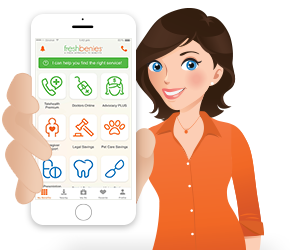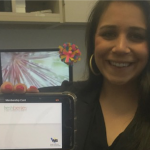5 TIPS FOR HEALTHY SURVIVORSHIP
Did you know it is National Cancer Survivor’s Day at the beginning of June? In honor of the day, I interviewed Wendy Harpham MD, FACP on embracing life after a cancer diagnosis. Dr. Harpham, a doctor of internal medicine and cancer survivor herself, is the author of several books, including Diagnosis: Cancer, After Cancer and When a Parent Has Cancer.
She helps patients become “Healthy Survivors,” a term she coined in 1992 and defined as “Survivors who (1) get good care and (2) live as full a life as possible”. In short, Healthy Survivorship is an approach to any medical challenge that promotes physical healing and joyful living.
Dr. Harpham shares her top 5 tips for being a Healthy Survivor…
1) Don’t let cancer define you
Without denying her illness, being a cancer patient was never Dr. Harpham’s primary identity.
Even in the middle of treatment, she saw herself as a wife, mother, daughter, and friend. One way she did that was by asking friends and family in social settings to talk about her family, her writing—and not ask about her health. She kept them informed about her health with private updates.
2) Be an effective patient
Dr. Harpham says, “We’re not born knowing how to be ‘effective patients.’ You get better care when you take responsibility for helping your physicians and nurses care for you.” She shared these valuable tips…
Come prepared for your doctor visits.
Preparation is vital for a successful visit, whether a routine check-up or an emergency visit prompted by a new and worrisome symptom. Call ahead to verify if you should be fasting, bringing something (for example, your sleep diary or test results from another doctor), or taking/refraining from certain medications. Always bring a list of your current meds, as well as a list of your questions and concerns.
Be honest about your symptoms or problems
Reporting symptoms isn’t complaining. Wanting an understandable explanation of your illness or treatment isn’t wasting anyone’s time. Learn which signs or symptoms need to be reported immediately, which can wait until your physician’s office opens, and which can wait until your scheduled follow-up. If you’re unsure (even if it’s 2 a.m.), call and let the doctor or nurse decide if it needs attention. Better safe than sorry.
Before leaving, clarify details
Leave the doctor’s office only after you’re clear about all your instructions, prescriptions, appointments, tests, treatments or follow-up visits. Take responsibility for your next steps and don’t depend on the office or hospital to call and remind you.
3) Ask for and accept help
While Dr. Harpham is a very independent person, the “Rambo” approach was never for her. Asking for and accepting help, when needed, made life easier, safer, healthier and happier. To quote our friend, Debbie Moreton, from an article we did on living with MS, “Make your life easier, wherever possible. I don't like asking for help, but you know what? Do it. People want to help, they just don't want to offend you. Let them help! Most people are more than happy to accommodate.”
4) Learn enough - not everything
Dr. Harpham feels strongly that people need to learn the minimum to know their options, make wise decisions, and take effective action regarding all aspects of life after cancer. That said, she also feels strongly that you don’t need to learn everything. When your health is stable, let cancer drift into the background and go live your life!
5) Speak the language of a healthy survivor
Have you heard the saying, “What you say is what you get?” Well, it’s true with cancer, too. How you talk about yourself and your survivorship affects how you feel about yourself and your life. Find words and phrases that help you think about your survivorship in life-enhancing ways. Use phrases that acknowledge your challenges while leaving room for hope.
When you feel like saying: Try saying:
“My treatment is too hard.” “My treatment is very hard.”
"This is too stressful.” “This is very stressful.”
“I’ll never feel whole again.” “I don’t feel whole right now.”
“I can’t take any more.” “I need help to deal with this.”
Dealing with cancer can feel overwhelming. Happiness can seem impossible. But it’s not. By obtaining sound knowledge, nourishing realistic hope, and taking effective action, Healthy Survivors get good care and find some happiness despite illness and, in certain ways, because of it.
Now it’s your turn! Have you or someone you love been diagnosed with cancer? What steps did you take to make the right decisions and get good care from diagnosis through treatment?
















